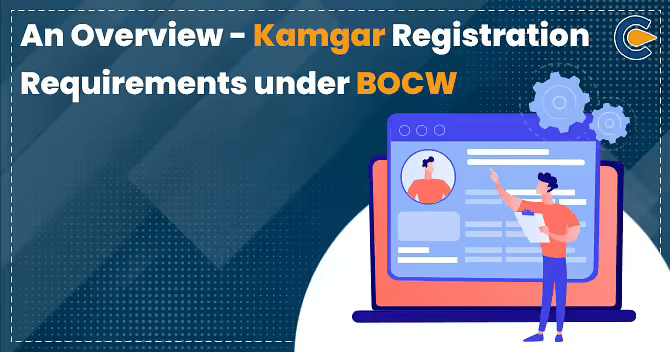In 1971, the Contract Labour (Regulation and Abolition) Act[1] was aimed at regulating the employment of contract labour at certain establishments and providing for its abolition under specific conditions. In 1974, the Contract Labour (Regulation & Abolition), Karnataka Rules were introduced. The Act applies to the entire state of Karnataka and to all units in Karnataka, with the exception of the Central Government. In 2020, the Karnataka Governor announced the Industrial Disputes and Certain Other Laws (Karnataka Amendment) Ordinance, which would go into effect immediately. The Ordinance introduced certain significant changes to several Acts, including the CLRA Act Karnataka, which were aimed at improving ease of business across the state as well as attracting investments for the same.
Who does the CLRA Act Karnataka Apply to?
The CLRA Act applies to any and all establishments that employ or had employed, at one point, more than twenty people as contract labour. The Act also applies to any and all contractors who employ or have employed, at one point, twenty or more people.
Since the 2020 Ordinance, the threshold of applicability for such establishments has been increased. Now, any and all establishments that employ fifty or more people as contract labour must register under the CLRA.
The Act does not apply to any establishments where the work performed is intermittent or casual in nature.
Provisions Needed Under the CLRA Act
The CLRA Act Karnataka Rules largely follows the Central Rules with regards to necessary provisions, with the addition that in case of any arrangements made by a contractor with a primary employer, the canteen facilities provided by the primary employer to their direct employees shall be equally available to contract labour provided through the contractor. Following is a list of amenities and/or facilities that an employer is required to provide to contract labour under this Act-
- Canteens
- Rest-rooms
- A sufficient supply of drinking water
- Convenient and sufficient access to latrines and urinals
- Washing facilities
- First-aid facilities
Registration under the CLRA Act Karnataka
The principal employers of any and all establishments that fall under the purview of this Act must make an application to the registering officer within a specified period of time in order to register their establishment as per the Act. In this respect, CLRA Act Karnataka follows the same regulations as the central rule.
The registering officer may revoke an establishment’s registration at their own discretion if they’ve found the applicant to have suppressed or misrepresented any facts. Registration may also be revoked if it is found to be useless or ineffective. The registering officer shall provide the principal employer with an opportunity to present their case before finalising the revocation of registration.
Factors Considered for Prohibition of Employment of Contract Labour
Under the CLRA Act Karnataka, the state board may prohibit any establishment from employing contract labour via Official Gazette notification. The following factors are considered while making the decision to prohibit the employment of contract labour at an establishment, with regard to the working conditions, benefits provided and other such factors-
- If the services provided by the establishment are incidental to or necessary to the industry, trade, occupation, etc., performed by the establishment in question
- If the work done is perpetual or carried on for a sufficient duration with regards to the respective industry, trade, occupation, etc.
- If he work can be done ordinarily through regular workmen either in the establishment in question or at another establishment of a similar natural
- If the work done warrants the number of workmen employed as contract labour
Payment of Wages under the CLRA Act Karnataka
The CLRA Act Karnataka Rules largely follow the Central Rules regarding the responsibility of paying wages.
- Contractors are responsible for paying each of the contract labours under their employ within the specified period of time.
- Primary employers are required to nominate a representative who would be responsible for the disbursement of the wages by the contractor and it shall be the representative’s responsibility to certify the amount paid.
- The contractor is responsible for ensuring the disbursement of wages in the aforementioned representative’s presence.
- The principal employer is liable, in case of the contractor fails to pay the wages by the specified time or falling short on payments, to pay the full wages or any unpaid balances that may be due at the time. The primary employer can recover this amount through either a deduction from a contract with the contractor or through debt.
Penalties Under the CLRA Act Karnataka
Any individual who obstructs an investigator from fulfilling their duties refuses inspection or wilfully neglects to provide the inspector with necessary facilities for the inspection, inquiry, etc., may be punished with imprisonment for a period of up to 3 months, or with a fine of up to five hundred rupees or both.
Refusal to produce any necessary documents on the inspector’s demand or attempts to prevent any persons from appearing before the inspector can be punishable with imprisonment for a period of up to 3 months, or with a fine of up to five hundred rupees or both.
Contravention of any of the provisions under the Act or of any conditions of the licence granted under the same can be punishable with imprisonment for a period of up to 3 months, or with a fine of up to a thousand rupees or both.
Conclusion
The Contract Labour (Regulation and Abolition) Act exists to protect Contract Labour from being exploited by primary employers and contractors alike. Through the regulations and abolition allowed for under this Act, Contract Labours are ensured better working conditions, provisions, wage security, etc. The present-day version of CLRA Act Karnataka follows the Central Rules in most aspects, the most prominent exemption to this being the increased threshold for applicability following the 2020 Ordinance.
Read our Article:Key Highlights of the CLRA Act











